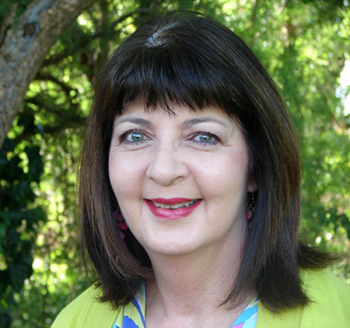Latest News Archive
Please select Category, Year, and then Month to display items
05 June 2018
Photo Supplied
 Archaeological excavations in the Wonderwerk Cave, north of Kuruman in the Northern Cape.
Archaeological excavations in the Wonderwerk Cave, north of Kuruman in the Northern Cape.
Research fellow Dr Lloyd Rossouw from the Department of Plant Sciences at the University of the Free State (UFS) recently published an article in the Nature Ecology and Evolution journal with Dr Michaela Ecker from the University of Toronto as lead author, and Dr James Brink, research fellow at the UFS Centre for Environmental Management. The findings described in “The palaeoecological context of the Oldowan-Acheulean in southern Africa” provides the first extensive paleoenvironmental sequence for the interior of southern Africa by applying a combination of methods for environmental reconstruction at Wonderwerk Cave, which have yielded multiple evidence of early human occupation dating back almost two million years ago.
Where water once was
The Wonderwerk Cave is found north of the Kuruman hills (situated in Northern Cape) a 140m long tube with a low ceiling. The surroundings are harsh. Semi-arid conditions allow for the survival of only hardy bushes, trees, and grasses. But during the Early Pleistocene, stepping out of the Wonderwerk Cave you would have been greeted by a completely different site, the researchers found. Using carbon and oxygen stable isotope analysis on the teeth of herbivores (Dr Ecker), fossil faunal abundance (Dr Brink), as well as the analysis of microscopic plant silica remains (phytoliths) excavated from fossil soils inside the cave (Dr Rossouw), the results show that ancient environments in the central interior of southern Africa were significantly wetter and housed a plant community unlike any other in the modern African savanna.
What difference does it make?
While East African research shows increasing aridity and the spread of summer-rainfall grasslands more than a million years ago, the results from this study indicate an interesting twist. During the same period, shifts in rainfall seasonality allowed for alternating summer and winter-rainfall grass occurrences coupled with prolonged wetlands, that remained major components of Early Pleistocene (more or less the period between one and two million years ago) environments in the central interior of southern Africa. That means our human ancestors were also living and evolving in environments other than the generally accepted open, arid grassland model.
Prof Heidi Hudson appointed to international Committee on the Status of Women
2015-11-24
 Prof Heidi Hudson is looking forward to advancing women scholars globally
Photo: Supplied
|
Prof Heidi Hudson, director of the Centre for Africa Studies at the University of the Free State, was recently appointed by the President of the International Studies Association (ISA) to serve on the Committee on the Status of Women from March 2016 to April 2018.
Representing over 100 countries, ISA has more than 6 500 members in North America and internationally, and is the most respected and widely-known scholarly association in the field of International Studies.
She anticipates that her role on the committee will complement her research interests in feminist security theory and practice in Africa. “I am looking forward to playing a part in the advancement of southern scholars, and the promotion of their voice in global academe.”
Prior to Professor Hudson’s appointment, she served as a member of the executive of the Feminist Theory and Gender Studies (FTGS) Section of ISA.
Representing women of the world in academia
The Committee on the Status of Women has the task of reviewing the status of women in the profession, and making recommendations to the president and the Governing Council of ISA on ways of tracking and increasing the status and visibility of women in the profession.
“Some of the goals of the committee for the 2014 to 2016 period include reaching out to women scholars in the global south; creating an ISA networking website for women scholars; and surveying perceptions of the international relations climate and its needs,” said Prof Hudson. It is also responsible for “tracking gender balance within ISA and its journals, and supporting ISA regions in fulfilling the mission of the Committee on the Status of Women,” she added.
Connecting scholars globally since 1959
The ISA has been the premier organisation for connecting scholars and practitioners in fields of international studies, and promoting research and education. ISA cooperates with 57 international studies organisations in more than 30 countries, is a member of the International Social Science Council, and enjoys non-governmental consultative status at the United Nations.
Prof Hudson’s research interests concentrate on discursive and material gender deficits of liberal peacebuilding in the post colony, amongst other subjects. She is also co-editor of International Feminist Journal of Politics.